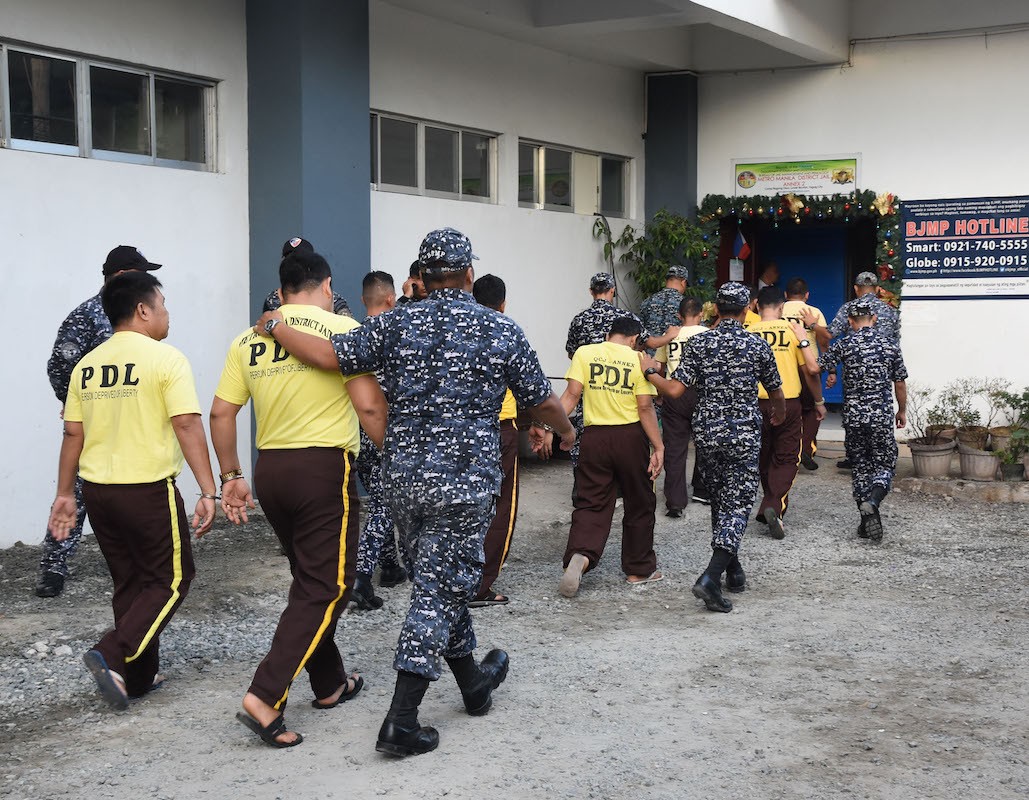A Philippine court handed down a guilty verdict on key leaders of a political clan, their henchmen, and several policemen for the killing of 58 people, including 32 journalists, on Nov. 23, 2009.
Presiding Judge Jocelyn Solis-Reyes handed down a 761-page decision after 101 suspects stood trial for ten years and a month.
The judge found 28 principal accused, including five members of the influential Ampatuan clan of Mindanao, 20 police officers, and three others, guilty of multiple murder.
They were sentenced to “reclusion perpetua,” or up to 40 years in prison without the possibility of parole.
Also found guilty as accessories to the crime were 15 others who were sentenced to from six to ten years and eight months in prison.
The court acquitted 52 of the accused not guilty due to “reasonable doubt.” The judge also acquitted three others due to the prosecutors’ failure to prove guilt.
Judge Solis-Reyes ordered the accused to indemnify the heirs of the victims, providing varying amounts from less than US$2,000 up to about US$40,000.
Instead of 58 counts of murder, Judge Solis-Reyes only handed down 57 counts of murder, leaving the family of journalist Reynaldo Momay, whose body was never found, in a limbo of grief.
The family was also left out in the reading of indemnification of damages.
The court’s decision was a blow to Momay’s daughter, Maria Reynafe, who fought to have his father included as the 32nd slain journalist to be able to file a case against the Ampatuan clan.
“Do you know how it feels to have no closure?” she said.
Only a pair of dentures said to belong to Momay was found in the massacre site. The family’s counsel, Harry Roque, said they would appeal the decision.
The 2009 massacre has become the world’s single deadliest attack against journalists.

Calls for vigilance
The court handed down the verdict more than ten years since armed men waylaid a convoy carrying the wife, relatives, and aides of Esmael Mangudadatu, a rival politician to the Mangudadatus.
The convoy was on its way to the town of Shariff Aguak where Mangudadatu’s wife planned to file the certificate of candidacy of her husband who was running for governor of Maguindanao province.
Hearings on the case began on Jan. 5, 2010. By the time the prosecution rested its case, it had presented 134 witnesses while the defense panel presented 165.
During the trial, eight of the accused died while two key witnesses, including one of those involved in the killing, who turned state witness, were killed.
Mangudadatu told reporters earlier on Dec. 19 that he would not accept an acquittal for any member of the Ampatuan clan.
He relented after the sentence was read but noted that ten Ampatuan family members “were set free even though our witnesses clearly said they were involved in the planning” of the crime.
“It is still justice,” said the former governor who was elected congressman in May this year. “It is very important to those who lost families,” he said, adding that the judge “was fair.”
“This decision will define us as a nation. This incident has caused us so much humiliation,” said Joel Sy Egco, head of the Presidential Task Force for Media Security.
“Beyond the issue of media killings, this promulgation will showcase to the world that the Philippines values, upholds, and fights for human rights and dignity,” he added.
The National Union of Journalists of the Philippines hailed the verdict as a “major victory.”
“This is not just for the families or the media, but also a victory for a nation thirsty for justice,” said union chairman Jose Jaime Espina.
“It is partial because some whom we believe have blood in their hands were acquitted, but we leave it to the wisdom of the judge,” he said.
Espina called on the media and the public to continue to be vigilant “While convicted persons have a right to appeal, let us work together to ensure there can be no future miscarriage of justice,” he said.
Phil Robertson, deputy director for Asia of Human Rights Watch, tagged the decision a “momentous verdict.”
“It should help provide justice to the families of the victims and build toward greater accountability for rights abuses in the country,” he said.







